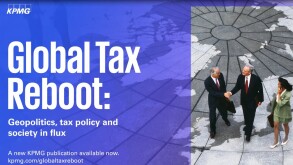In years gone by, business looked primarily to increasing shareholder returns, paying less attention to how their business practices affected the environment and society. For many, the primary concern in supply chain design was cost, with little inquiry into how supply chain partners conducted business. However, more and more, such money-oriented approaches to business are no longer viewed as sustainable over the medium to long term. Rather, for business to succeed over time, companies must balance the interests of all stakeholders. This means an emphasis on environmental, social, and governance (ESG) issues.
In 2019, Business Roundtable (BRT) released a new Statement on the Purpose of a Corporation, signed by 181 CEOs of American firms who committed to lead their companies for the benefit of all stakeholders—customers, employees, suppliers, communities, and shareholders. ESG advocates believe that companies that adapt to changing socioeconomic and environmental conditions are better positioned to see strategic opportunities and create competitive advantages over less ESG-focused enterprises.
Tax has emerged as an important element of ESG. The B Team, a coalition of business leaders advocating sustainable business practices, has stated, “Responsible tax can no longer be viewed as solely a technical [matter] for finance or tax departments.” According to BRT, taxes are critical to the orderly function of civil society and directly tied to BRT’s commitment to “supporting the communities in which we work.”
Stakeholders focused on ESG expect companies to conduct their tax affairs in a sustainable manner, measured in terms of good tax governance and paying a 'fair share'. ESG stakeholders view the public disclosure of a company’s approach to tax, the amount of taxes paid, and where those taxes are paid as important elements of sustainable tax practices. Such tax transparency is about trust.
This article is part one of a two-part series. This article will discuss how the public, business and government attitude to ESG tax matters has evolved, introduce the elements of tax transparency reporting and the tax transparency voluntary and mandatory reporting landscape. The next edition will discuss what this means for businesses now and provide a deeper dive on the individual elements of tax transparency reporting including practical considerations and tips.
Then and now
Public expectations about corporate tax behavior became a mainstream topic during and after the 2008 financial crisis, where there was a growing belief that corporations were not paying their ''air share' of tax. The release of the Panama Papers, Paradise Papers and Lux Leaks sharpened that perception.
Non-governmental organisations (NGOs), policymakers and other stakeholders called on multi-national enterprises (MNEs) to be more responsible around their tax obligations. At the same time, governments launched globally coordinated efforts to help better ensure that business paid their 'fair share' of tax. This effort resulted in several global tax reforms, including the requirement that large companies report on the taxes they pay, by jurisdiction, to the tax authorities where they do business (country-by-country reporting (CbCR)). These efforts have not appeased some ESG stakeholders who are looking for corporations to share the same CbCR information publicly.
ESG standard setters have called for greater public disclosure around tax governance and payments. For example, in 2019, the Global Reporting Initiative (GRI) issued GRI 207, setting standards for the reporting of tax governance, control and risk management – as well as for public CbCR that includes disclosures of profits, employees and taxes on a per country basis. Further, there is a newly approved directive in the EU which will require member countries to bring public CbCR legislation into force by mid-2023. These rules would then become applicable in 2024, meaning that the first reportable year, for calendar year taxpayers will be 2025, with reports due 12 months after the balance sheet date. Additionally, there is a proposal in the US that would mandate public CbCR, however, it is unclear whether this will be approved.
With a rapidly increasing amount of investment capital seeking ‘impact investment’ opportunities, most rating agencies have developed ESG rating indexes. Further, institutional investors and funds are increasingly evaluating ESG behaviour in their investment process. Sustainable tax practices are viewed as important measures of sustainability for both rating agencies and investors.
Exploring tax transparency
The call for public tax transparency comes from a mistrust by some stakeholders towards MNEs resulting from a perception that MNEs abuse the international tax system to avoid paying their 'fair share' of tax. Some companies have responded with greater tax transparency to demonstrate their approach to tax is sustainable and regain the trust of skeptical stakeholders. Indeed, tax transparency can demonstrate both a responsible approach to tax and how much MNEs contribute to government revenues, and more widely to society at large. The simple fact of being transparent is a signal to the public that a company is acting responsibly.
Tax transparency may take different forms, with disclosures of information that is qualitative, quantitative, or both. Additionally, tax transparency can be seen on a spectrum, with limited qualitative disclosures on one end, and detailed qualitative and quantitative disclosures at the other end.
Qualitative disclosures
Qualitative disclosures describe a company’s approach to tax. Many companies today have made their board-approved tax strategy or policy publicly available. Since 2016, for large companies and groups in the United Kingdom, publishing their UK companies’ tax strategy is a legal requirement. Corporate governance recommendations for listed companies in countries such as Spain and Denmark now also include an expectation to publish a board-approved tax strategy. In Australia, many MNEs have voluntarily signed up to the Australian Tax Office’s (ATO) Tax Transparency Code, which, amongst other things, requires companies to disclose their tax strategy.
Quantitative disclosures
Quantitative disclosures provide the details of how much tax was paid during the time period and where. They often provide additional information, such as how many employees were employed in any given jurisdiction or how much revenue and profits were earned over the same period, to provide context. Providing this context is as important as disclosing the tax figures, for example, paying no corporate income tax in a jurisdiction may seem unusual until it is also clear that revenues were small, and the business made a loss in that jurisdiction over the period.
Increasingly, businesses are not only disclosing corporate income tax payment information, but also payment information for other kinds of taxes.
Government action
Organisations should expect additional government action on enhanced tax reporting to be likely at some point – maybe sooner than later. This will be a significant consideration for MNEs as they consider compliance with new disclosure rules and the appropriateness or necessity of supplementary tax information.
In June 2021, EU institutions reached political agreement on a public CbCR directive which was published in December 2021. It will require MNEs with global turnover of €750 million (approximately $1 billion) for two consecutive years, whether headquartered in the EU or not, to disclose their corporate income tax payments on a country-by-country basis for all EU jurisdictions and jurisdictions found on the EU list of non-cooperative jurisdictions. Note that the €750 million threshold is more nuanced for non-EU headquartered groups. Adoption of this directive had stalled for years until Germany, Austria and the Netherlands recently voiced support in the aftermath of the COVID-19 pandemic and ever-increasing public pressure.
Meanwhile, in June 2021, the US House of Representatives passed the Tax Havens and Offshoring Act (Title V of HR 1187) requiring corporations registered with the US Securities and Exchange Commission to publicly disclose CbCR information. Whether this proposal will pass the US Senate is unknown, but the mere fact of passage in the US House is indicative of a trend and the current direction of travel.
The UK’s Finance Act 2016, referenced above, requires the publication of the UK group’s tax strategy, also gives power to the UK Treasury to require, by regulation, public CbCR. The UK government has said it will exercise this power once there is an international agreement on the issue.
A different approach has recently been taken in Poland, where starting in 2021, companies with revenues above €50 million will need to prepare and publish an annual progress report on the implementation of their tax strategy. This report shall at least include:
A description of the processes and procedures ensuring performance of taxpayers’ obligations arising from tax regulations;
A description of how the taxpayer performs their tax-related duties in the territory of Poland, including the number and type of tax arrangements reported to tax authorities under the EU Mandatory Disclosure Rules;
Information on controlled transactions, the value of which exceeds 5% of the balance sheet assets;
Notification on the submitted applications for issuing declaratory and binding rulings; and
Information on settlements made in countries that encourage abusive tax practices.
The requirement to publish progress reports of this kind is expected to only to become more common. It reflects the recognition that often, refreshing corporate policies and implementing them across a large and complex group takes time. However, requiring progress reporting increases the transparency of this process and by extension increases the accountability of the company.
Conclusion
When it comes to tax transparency, it is believed that the direction of travel is abundantly clear. More reporting is being required by governments and more comprehensive standards are being developed. It is expected that this trend will only continue as the narrative around this topic grows and the public’s expectations increase for businesses.
Please read the next article which will explore how businesses can tackle this growing expectation in a comprehensive and meaningful way.
Parts of this article were originally published in the professional journal of the Tax Executives Institute.



































